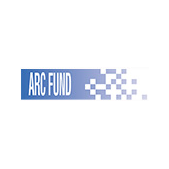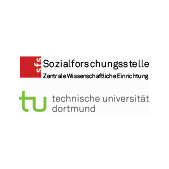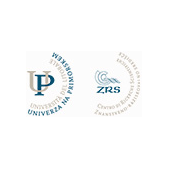How often do you use your car? Do you know that on average cars in Europe are parked around 92% of the time and in the remaining 8% only 1.5 of its 5 seats are occupied? How much food do you throw out every day? Do you know that more than one third of the food is wasted along the value chain? Are you aware that most of European offices are used less than half of the time, even during working hours? The annual costs of these inefficiencies are enormous - around 7.2 trillion Euro for the three sectors concerned, namely mobility, food and housing.
In June 2015, a report entitled “Growth Within: A Circular Economy Vision for a Competitive Europe” was released by the Ellen MacArthur Foundation, the McKinsey Center for Business and Environment and SUN (Stiftungsfonds für Umweltökonomie und Nachhaltigkeit), which looks into these three sectors. The main message of the report relates to the economic, environmental and employment gains which can be achieved by moving towards a circular economy. The report concludes that in order to make a transition to a circular economy[1] in Europe, rapid technological development and adoption is needed but would be insufficient. Rather, the authors urge for a shift in perceptions, which maximises the value of products and materials, as well as moving towards a more systemic approach in using resources. The study compares the future state of the European economy which can be reached following the current development path and a future scenario in which the economy grows abiding to the principles of the circular economy.
The study demonstrates that moving towards a circular economy would allow Europe to improve its resource productivity with up to 3% on an annual basis, decrease CO2 emissions with 48% by 2030 and 83% by 2050, and reduce primary material consumption with up to 32% by 2030 and 53% by 2050. The improved resource productivity could generate benefits of 1.8 trillion Euro and an increase in GDP of 7 percentage points relative to the current development path scenario. The study also highlights the positive employment effects a circular economy could have due to the increased spending allowed by the efficiency-generated lower prices.
To achieve these gains, however, stimulating technological progress would not be sufficient. The efficiency gains brought by disruptive technologies and business models would reduce the amounts of resources used and eventually lower the prices of products in these sectors. Yet, considering the elasticity of demand in the three sectors concerned, rebound effects are expected to constrain the achieved gains (in other words lower prices lead to increased use of individualised transport and floor space). The increased use of individualised transport and floor space would eventually require more resources, offsetting the gains achieved due to improved resource efficiency. The other major issue discussed in the report concerns the risk that public interventions may fail to steer future outcomes at a system level in a way allowing new technologies to be effectively integrated in urban planning, mobility systems and food systems.
In order to deal with these issues, the report argues for the need to promote growth within, in other words, growth which maximises the value extracted from the existing stock of products and materials. The principles on which the concept of ‘growth within’ rests are the following:
- Preserve and enhance natural capital by controlling finite stocks and balancing renewable resource flows.
- Optimise yields from resources in use by circulating and utilising products, components and materials in use, such as by using sharing platform and extending product lifetimes.
- Foster system effectiveness by revealing negative externalities and inefficiencies and designing products and services in a way that minimises these.
In order to reap these benefits, however, policy interventions at all levels would be needed. In a circular economy somebody’s waste is somebody else’s input. A systemic shift is required in consumers’ perceptions, in the way we design goods and use materials, in the way we build our cities and govern our economies. Policy makers and stakeholders need to focus on four major areas, according to the authors of the report and these include:
- Support EU-wide learning, research and opportunity identification initiatives (e.g. pilot projects, groups for circular system change which identify improvement opportunities in the system, and academic research on circular economy)
- Support the development of a value-preserving material backbone, which would enable the multiple circulation of materials.
- Enable initiatives in each level of the economy, including European, national and local, which would help the realisation of circular business opportunities.
- Stimulate the transition towards improved resource productivity, employment and competitiveness through a balanced governance system which focuses both on improving the value of used materials and regenerating natural capital, rather than focusing mainly on asset flows (measured by GDP).
In addition to what has been mentioned in this insightful study, we would like to stress the importance of stakeholder involvement and public participation throughout the policy cycle, in the field of research and innovation and at the various levels of governance – EU, national and local. This will increase the sustainability of policies, products and services as it will allow for taking into account the various perspectives in the process of planning, production and evaluation and, thus, ensure that not only environmental but also social and health-related concerns are identified and considered early on in the process. Furthermore, improving the connection and communication between science and society will foster the creation of science-based solutions in the field of environmental technologies, but also social sciences and other relevant fields, which will be of vital importance for advancing in the transition towards circular economy. Last but not least, improving the democratic legitimacy of the policy decisions taken at the EU, national and local level will strengthen the link between policy makers and their constituencies and improve the sense of cooperation, accountability and ownership of the decisions made, thus, improving their acceptance by the public at large. In the context of a circular economy, these are all crucial aspects of the systemic shift needed to make the transition and move towards a more inclusive society, living in a cleaner and healthier environment.
* The image used is licensed under the Creative Commons CC0 1.0 Universal Public Domain Dedication.
[1] Circular economy in the report is defined as “an economy that provides multiple value creation mechanisms which are decoupled from the consumption of finite resources”.
Relevant themes:
Raw materials, Resource efficiency, Environment
Relevant tags: Sustainability, Circular economy



























Thanks Blagovesta for your thoughts! Numbers can be really eye-opening at times. It puzzles me looking at car usage data on the hand and about the on-going debate of rising costs of living in today’s cities. If you consider each car being parked needs around 10 square metres of city space and each car moving around 80 square metres and add that to your numbers and considerations above it just adds to question of whether we can sustain our cities run by and depending so much on cars. Sharing is caring and I am looking forward to future concepts and innovations!